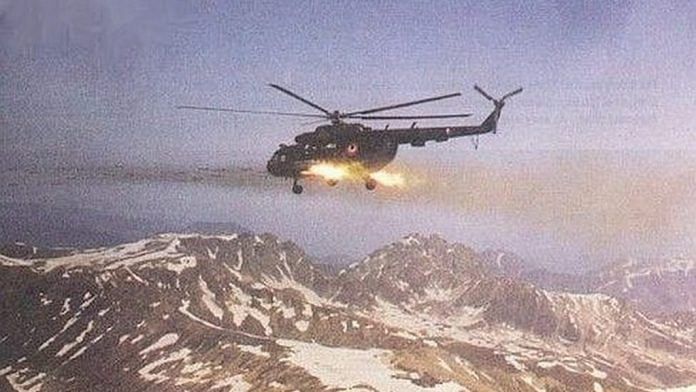New Delhi: Nearly 23 years after Indian troops emerged victorious against Pakistani soldiers after an almost three-month-long battle on the icy mountaintops of Kargil on 26 July 1999, the conflict continues to throw up lessons for the defence and strategic community.
Indian historians, journalists, and defence experts have drawn several lessons from the conflict — such as the need to be wary of “Pakistani recklessness” and to improve surveillance and intelligence machinery. Similar discussions re-entered public debate in 2020 following Chinese intrusions along the Line of Actual Control (LAC) in eastern Ladakh.
Some experts, however, believe that things have changed in the last 20 years. They are offering a new argument to suggest that the reasons and conditions that kept the Kargil conflict “restrained” or “limited” in 1999 no longer apply today. Given the 2019 Balakot strike, Pakistan now has an “incentive” to react more strongly in the event of a future crisis, they added.
Speaking to ThePrint, Arzan Tarapore, a South Asia research scholar at Stanford University who served for 13 years in the Australian Defence Department, told ThePrint that while Pakistan did not reinforce its position in the Kargil conflict, it retaliated after the Balakot strikes.
“If anything, Pakistan has an incentive to react more strongly next time, should there be a future crisis,” he said.
Lt Gen Rakesh Sharma (Retd), a Distinguished Fellow at the Vivekananda International Foundation and Centre for Land Warfare Studies, agreed, saying that unlike what happened after the Balakot strike, Pakistan “will focus on finding substantial targets” as a response option in the case of a future crisis.
The credibility of the Pakistan Army — as well as the public’s clamour — will demand it, he added.
Role of geopolitics, diplomacy
There have been arguments over how the perceived restraint exhibited by India and Pakistan in the Kargil conflict is an example of how nuclear proliferation, though dangerous, can help to enhance regional stability. But Tarapore argues that Kargil isn’t good evidence for that.
“We must remember that Pakistan and India probably didn’t have an operational nuclear capability in 1999. They had tested nuclear weapons but possibly did not have nuclear munition at the ready,” Tarapore said
In India’s case, he said, the restraint was about not crossing the Line of Control.
“Today, of course, the nuclear capability on both sides is very much operational,” he told ThePrint.
A serving military officer who didn’t want to be named also pointed out that India and Pakistan’s standing in the international community had changed dramatically since 1999 and that geopolitical factors will play a role in the military responses of both countries in any future crisis.
“To guess what a future crisis between India and Pakistan would look like has to do not only with military capabilities but also geopolitical standings,” he told ThePrint. “In 1999, India was in the doghouse vis-a-vis the international community due to criticism over its nuclear tests. There was pressure for it to exercise restraint and prove itself as a responsible nuclear power in Kargil.”
Today, he said, India is part of the Quad and aligns with the US against China, but still imports cheap Russian oil.
“India has reached a sort of diplomatic sweet spot,” he said. “Conversely, Pakistan is looked upon with suspicion by the West, especially after the Taliban came into power. So, both parties’ military strategy and scale of response in the event of a future conflict will be very much informed by geopolitical factors too,” he added.
(Edited by Uttara Ramaswamy)
Also Read: Before BrahMos, there was Canberra — India-Pakistan’s history of peacetime airspace violations



